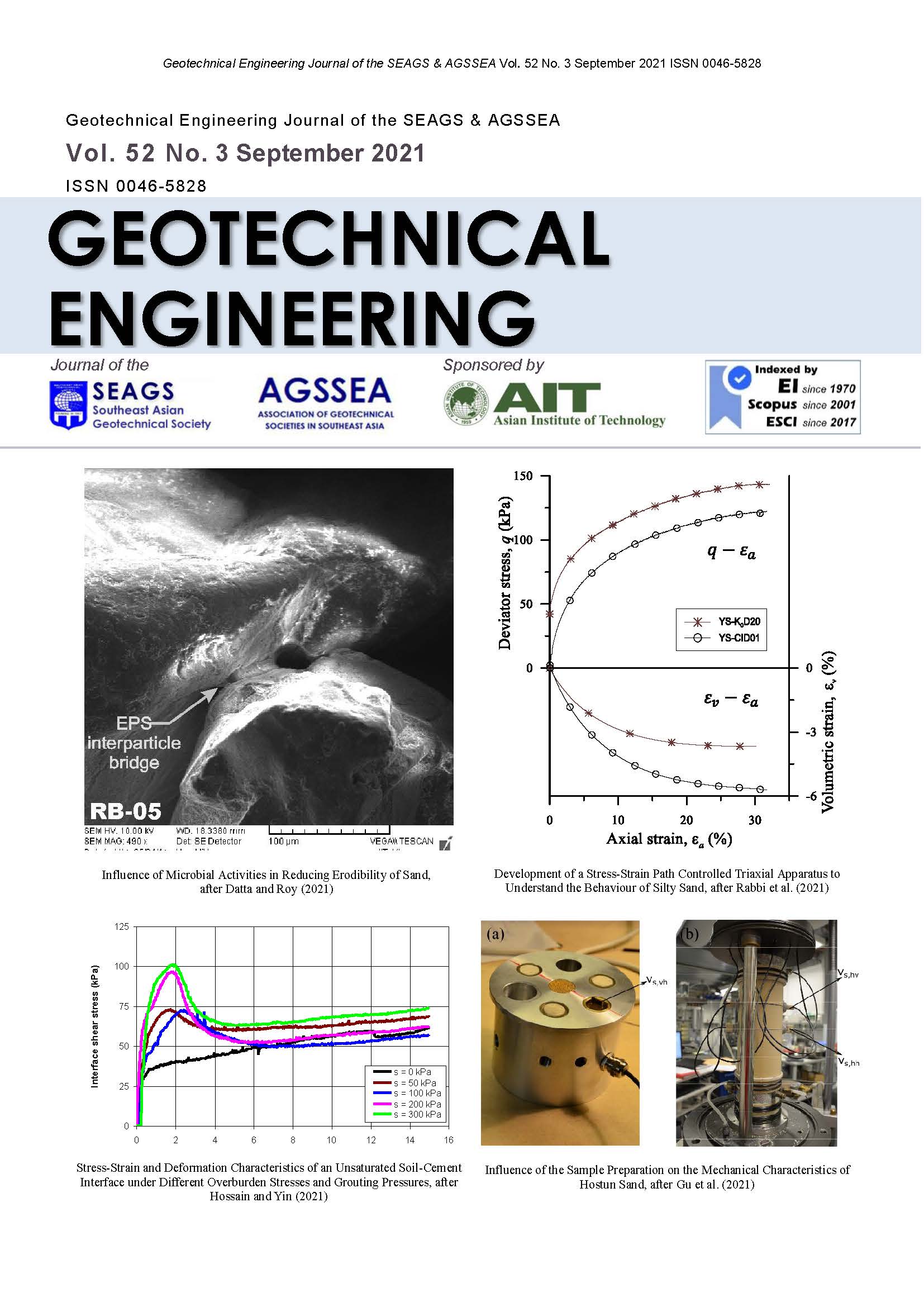Stress-Strain and Deformation Characteristics of an Unsaturated Soil-Cement Interface under Different Overburden Stresses and Grouting Pressures
Main Article Content
Abstract
The most important parameters, by which the shear strength of any interface may be affected, are overburden stress and degree of saturation. Nowadays, grouting pressure is considered as another important parameter, which affects the interface behavior. In addition to gravity grouting, pressure grouting has been widely used to grout insitu soil-cement grout interfaces, like interfaces of soil-nail, soil-pile, and soil-anchor. In the present study, a series of interface direct shear tests were performed between a compacted completely decomposed granite (CDG) soil and cement grout under different overburden stresses, matric suctions, and grouting pressures. The stress-strain and deformation characteristics of the pressure grouted interface are similar to that of the CDG soil. However, the dilation values of soil-cement interface under different grouting pressures are smaller compared to CDG soil. The interface shear strength envelopes are approximately linear, and the apparent interface friction angle and adhesion intercept increase with matric suction for particular grouting pressures. On the contrary, the apparent interface friction angle decreases with pressure grouting for different matric suctions except saturated condition at which it remains constant.
Article Details

This work is licensed under a Creative Commons Attribution-NonCommercial-NoDerivatives 4.0 International License.
Copyright © 2019 Association of Geotechnical Societies in Southeast Asia (AGSSEA) - Southeast Asian Geotechnical Society (SEAGS).


